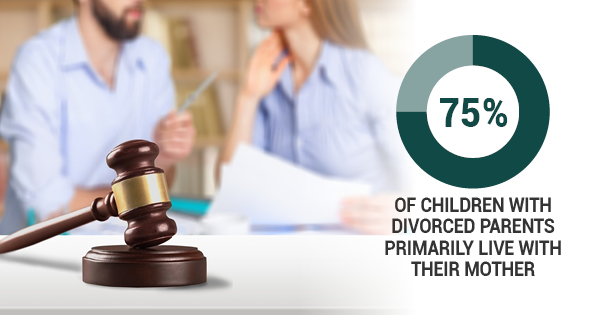FAQ: Child Custody and Support For Divorced Parents
 Completing a divorce process with children is difficult. It often calls for a whole separate parental agreement concerning finances, responsibilities, and custody. Your divorce mediation process should include a generous amount of time dedicated to understanding and recording your mutual agreements about family mediation and childcare post-divorce, but here are three frequently asked questions for you to have answered before you go into this delicate process.
Completing a divorce process with children is difficult. It often calls for a whole separate parental agreement concerning finances, responsibilities, and custody. Your divorce mediation process should include a generous amount of time dedicated to understanding and recording your mutual agreements about family mediation and childcare post-divorce, but here are three frequently asked questions for you to have answered before you go into this delicate process.
Who decides custody?
In an amicable divorce, typically the parents will mutually decide on a custody agreement that works for their schedules and wants. Sometimes they let the children have a say, especially older children. Joint custody is popular and gives parents more or less equal time and influence with their children, but single-parent custody with the other parent having visitation rights is still common. Occasionally a strong enough dispute arises that a judge will have to get involved for the good of the family, but their decisions strongly happen on a case-by-case basis. Traditionally custody cases have favored the mother as caregiver. Despite the statistic that 75% of children with divorced parents primarily live with their mother, with gender and parenting roles progressing today fathers have more equal ground when it comes to custody disputes.
Can a spouse or court decide that one parent cannot have contact with the children?
Divorce proceedings in courts begin with the assumption that contact with both parents is in the best interest of the child. If something comes up during the proceedings that changes this, a judge may possibly decide that contact with one parent is not in the child’s best interests. If joint custody or visitation rights are agreed on by both parents and the court at the time of divorce, one parent cannot legally keep the children away from the other without taking further legal action. If you pay child support and your ex-spouse prevents you from seeing your children, you cannot legally cut off child support payments. Child support and child custody are technically separate family mediation matters in court.
Do divorced couples need to decide on child support payments?
Not necessarily. The laws vary from state to state, but couples can decide to not deal with child support payments for various personal reasons. A decision from a divorcing couple to not organize child support payments will generally be considered very closely in divorce proceedings to ensure that the needs of the child or children will still be met.
Remember that divorce mediation and especially family mediation are handled differently depending on details and circumstances of your case. While these three questions are the most basic overarching concerns divorcing parents may have entering into custody negotiations, your divorce attorney will always be able to tailor more personalized answers to your questions.

